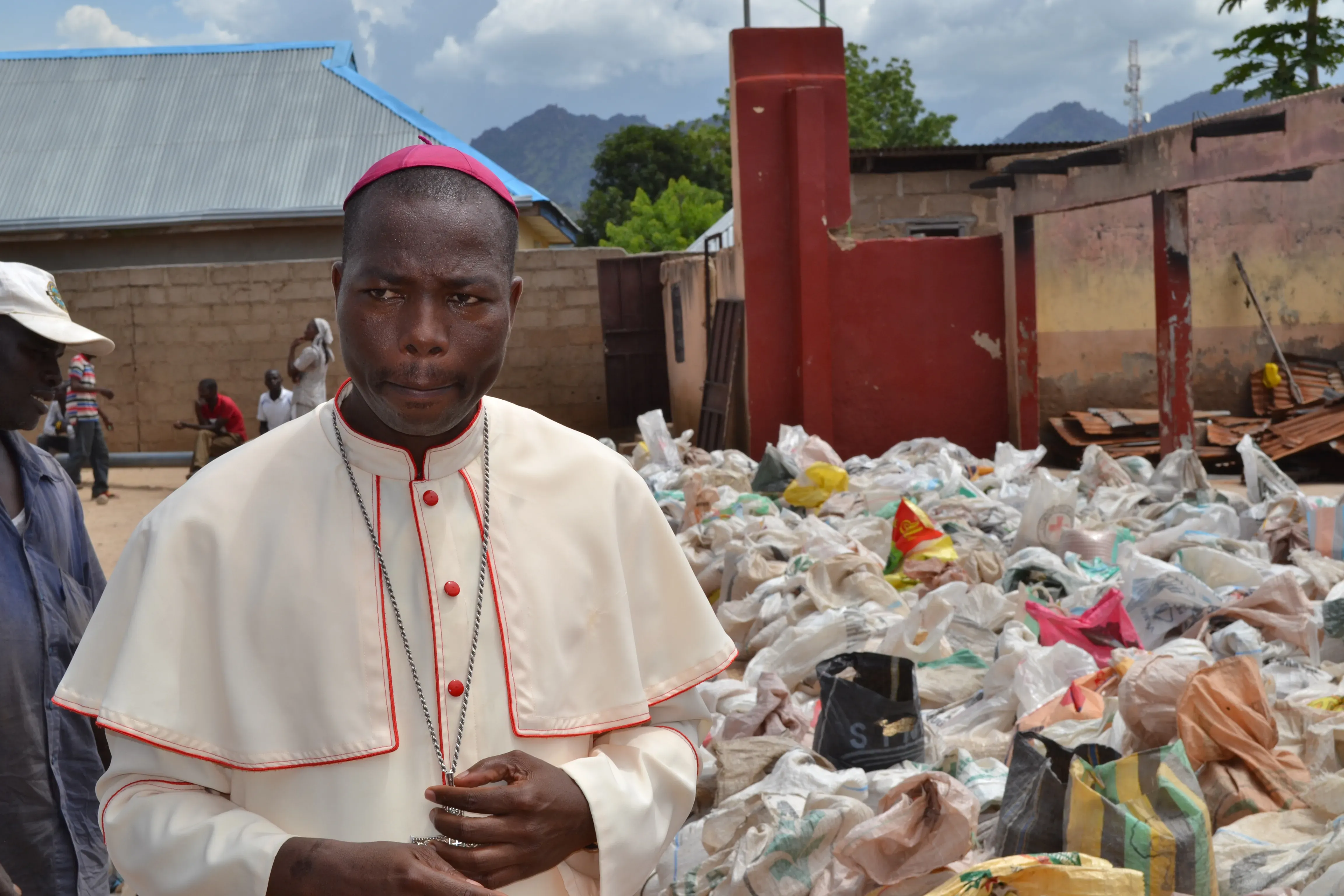"But unfortunately, before they went back their homes were already completely destroyed, and then there were land mines on their farms, even in their houses," Mamza said.
"It wasn't easy. Some of them had to come back because they had nothing to hang on to, they had no food, they had no shelter."
This past February, Mamza oversaw the construction of several houses in his diocese meant to accommodate victims of Boko Haram.
In Nigeria as a whole, at least 60,000 Christians have been killed in the past two decades. An estimated 3,462 Christians were killed in Nigeria in the first 200 days of 2021, or 17 per day, according to a new study.
Nigeria is Africa's most populous nation and the demographics overall are almost evenly split between Christians and Muslims. Nigeria's Christians, especially in the northern part of the country, have for the past several decades been subjected to brutal property destruction, killings, and kidnappings, often at the hands of Islamic extremist groups.
(Story continues below)
Part of the problem, Nigerian Christians have told CNA, is that the Muslim-controlled government has largely responded slowly, inadequately, or not at all to the problem of Christian persecution.
Fulani herdsmen, a Musim ethnic group, have been responsible for the most killings as of late, having murdered an estimated 1,909 Christians in the first 200 days of 2021.
Eric Patterson, executive vice president of the Religious Freedom Institute, told EWTN News Nightly on Wednesday that the U.S. Secretary of State has argued that much of the Muslim-on-Christian violence has to do with land and water rights.
"That type of materialist worldview really does not explain what's going on," Patterson asserted, and said the U.S. de-listing of Nigeria sends a message to the government that they can continue to "look the other way" and that the persecution can continue with impunity.
Mumza, too, emphatically disputed the claim that Fulani herder violence is mainly based on economic disputes, asserting instead that anti-Christian sentiment is at play. If it is a conflict over resources, Mumza asked, why do the herdsmen need to go to a house in the middle of the night, kill everyone in the household, and burn the house down?
Mumza concluded his interview by asking for prayers, particularly asking that people pray that the faith of persecuted Nigerian Christians be strengthened.
"We are ready to die for our faith," he said emphatically.
Jonah McKeown is a staff writer and assistant podcast producer for Catholic News Agency. He holds a Master’s Degree from the University of Missouri School of Journalism and in the past has worked as a writer, as a producer for public radio, and as a videographer.








